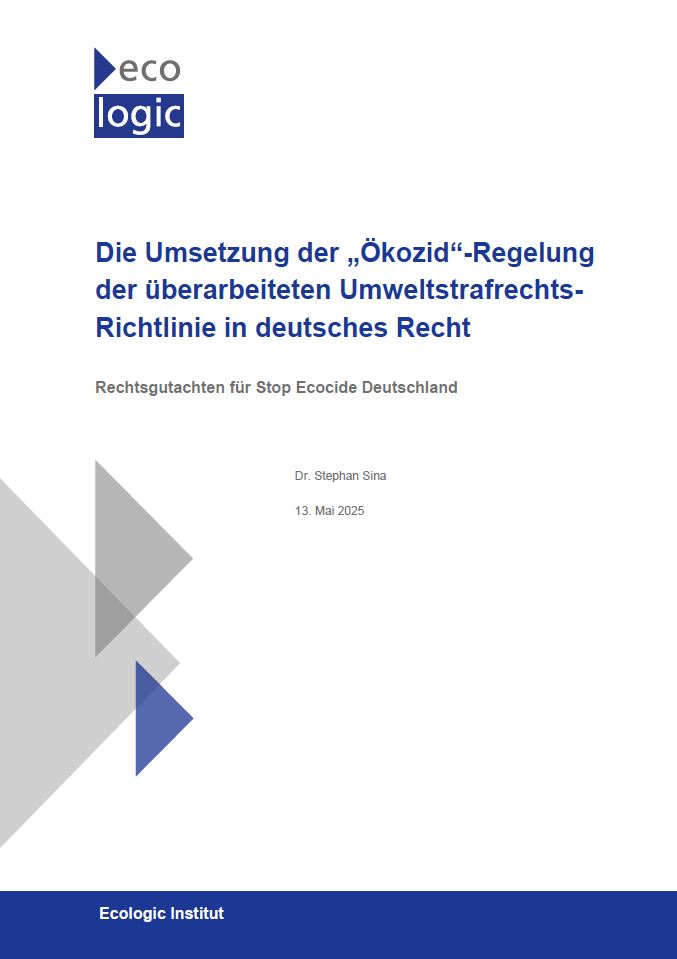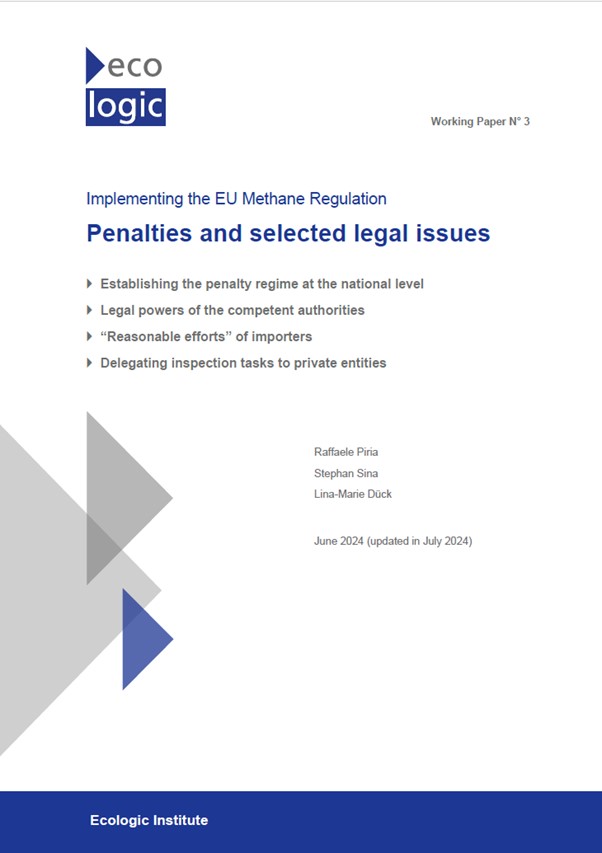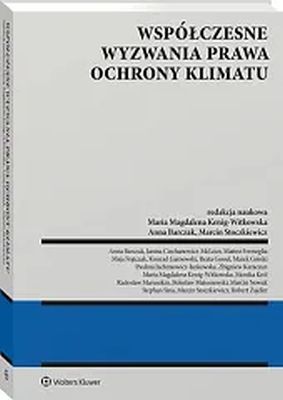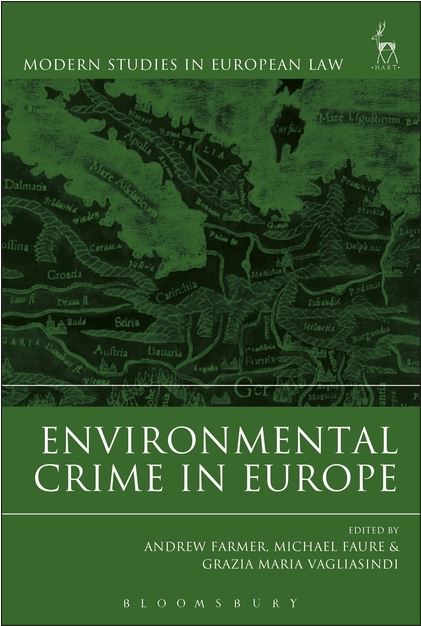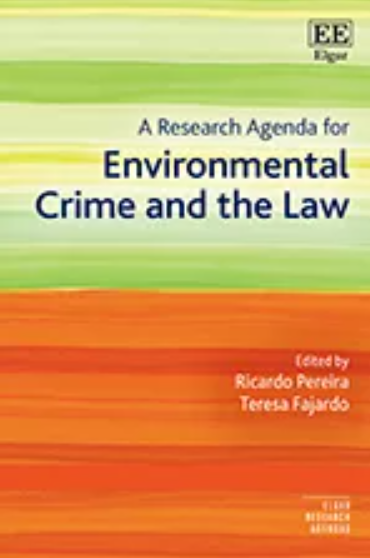
© EE Elgaronline, 2025
Climate Change and Criminal Justice
Chapter in A Research Agenda for Environmental Crime and the Law
- Publication
- Citation
Sina, Stephan (2025): Climate Change and Criminal Justice. In: Pereira, Ricardo / Fajardo, Teresa (eds.): A Research Agenda for Environmental Crime and the Law. Cheltenham (UK), Northampton/Massachusetts (USA): Edward Elgar. https://doi.org/10.4337/9781803929958
As part of the section on new and emerging themes in the book A Research Agenda for Environmental Crime and the Law, Stephan Sina, Senior Fellow at the Ecologic Institute, contributed a chapter titled "Climate Change and Criminal Justice". In this chapter, he explores why criminal law currently plays only a marginal role in discussions on climate change mitigation – and whether this should, and could, be changed.
His analysis of the enforcement landscape shows that, as a general rule, neither European law nor national legal systems require Member States to impose criminal sanctions for violations of climate mitigation laws. Nevertheless, there are compelling arguments for criminalizing serious breaches of such laws. A key challenge, however, lies in the fact that individual greenhouse gas emissions typically have only a minimal impact on climate change, making it difficult to determine which violations should be deemed serious. This challenge does not arise with other criminal offences linked to mitigation obligations, such as certain financial crimes. Sina suggests that while criminal law currently plays a complementary role in enforcing mitigation obligations, it may evolve into a more independent instrument in a future context where climate neutrality has been achieved.
The volume A Research Agenda for Environmental Crime and the Law, edited by Ricardo Pereira (Cardiff University) and Teresa Fajardo (University of Granada), and published by Edward Elgar, comprises 14 chapters addressing a broad range of environmental crime issues. Topics include research methodologies, ecocide legislation, biodiversity crime, illegal wildlife trade, animal rights, the enforcement of environmental criminal law, artificial intelligence, and international institutions tackling transnational environmental crime.




